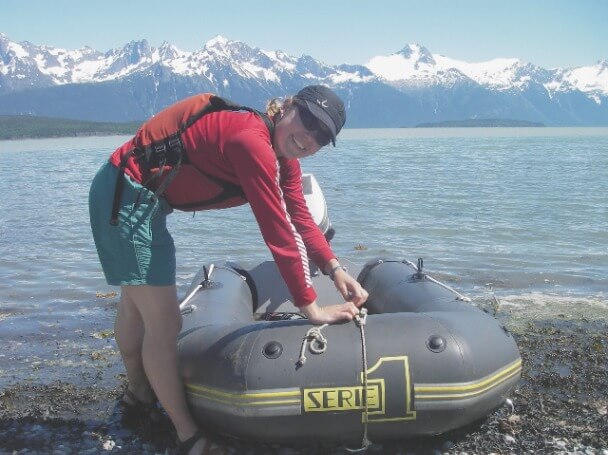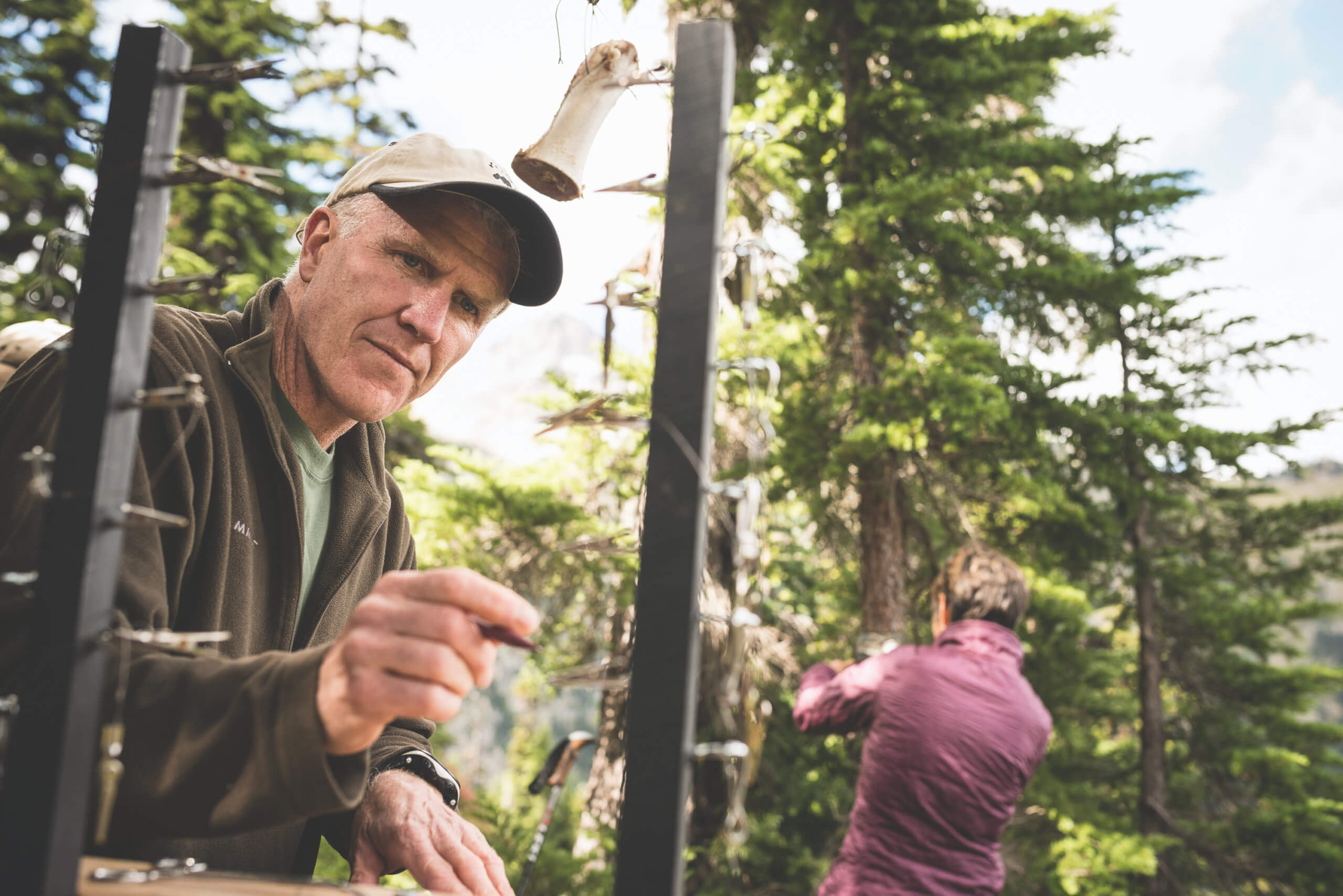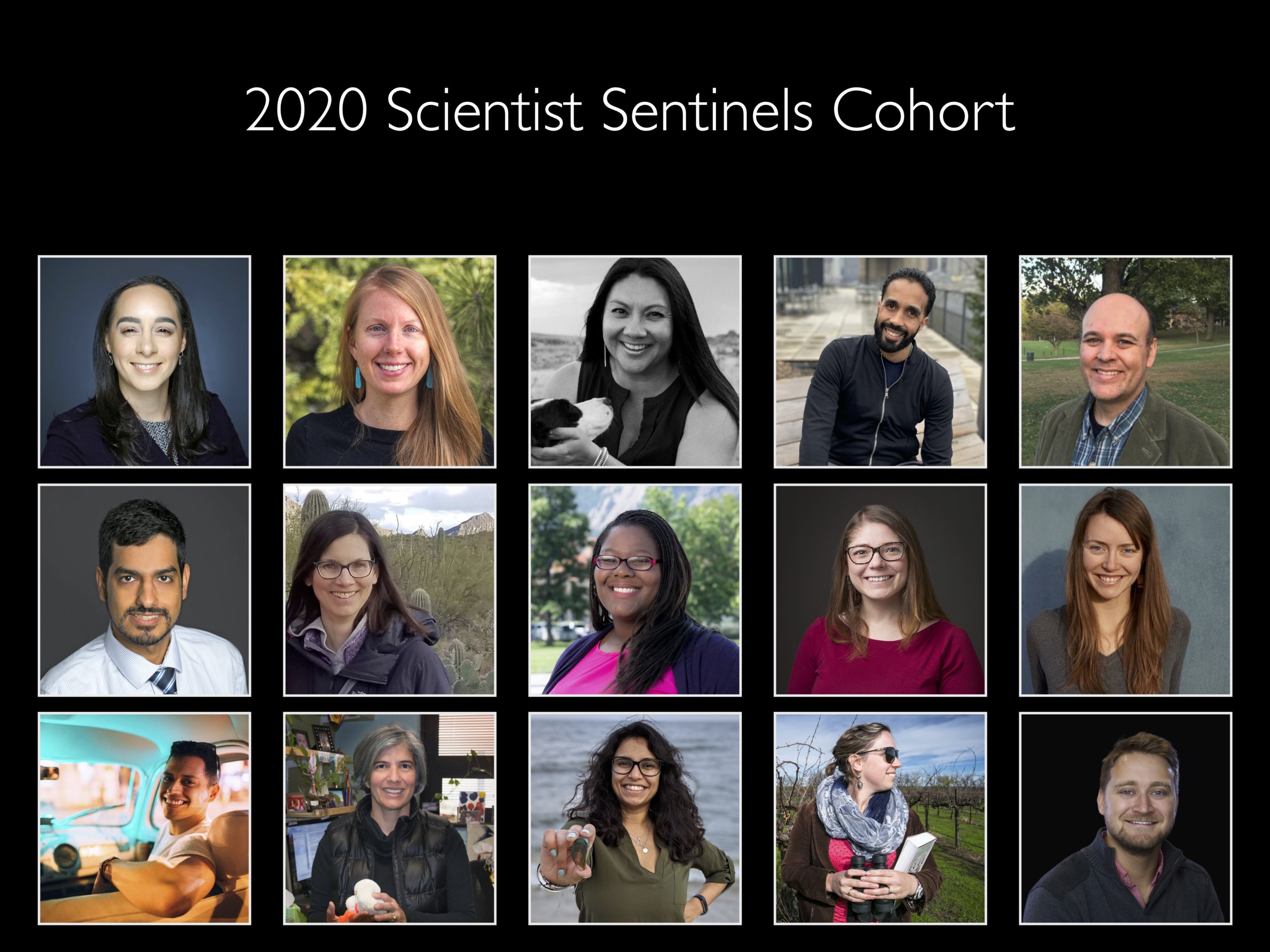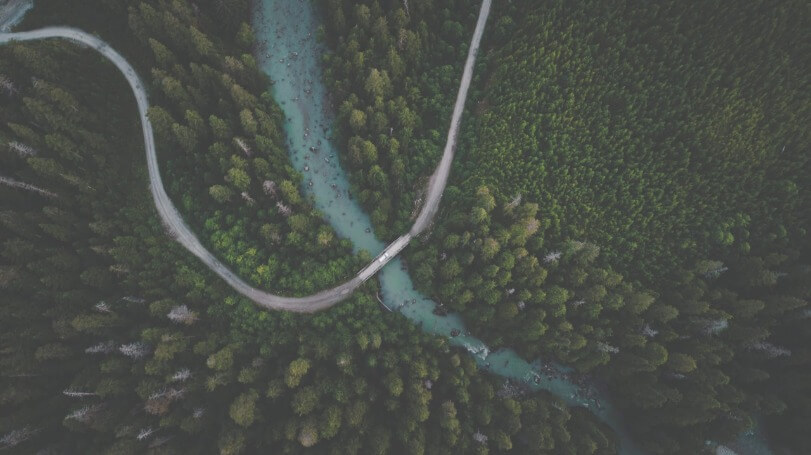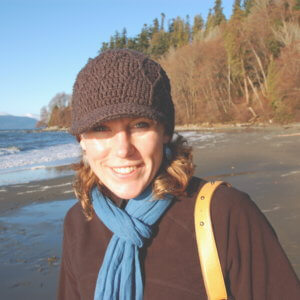
Dr. Aerin Jacob.
Dr. Aerin Jacob is a Liber Ero Post-Doctoral Fellow at the University of Victoria. Trained as an ecologist, she works with managers and Indigenous communities on marine and coastal planning in British Columbia, Canada.
We spoke with Aerin about what being a Wilburforce Fellow has been like for her – here are her thoughts.
How has being a Wilburforce Fellow impacted you and your work?
It’s hard to put into words – it’s been amazing both professionally and personally. I applied for the fellowship shortly after I finished my PhD and moved back to the west coast. Moving to a new place and starting new research, I felt a bit like the bee in that Blind Melon video, trying to find my people! I’m lucky to work with people in British Columbia who care deeply about conservation and science, who have passion and are willing to step outside of their comfort zones to make a difference. On the first day of the Wilburforce training, I looked around the room and there were scientists just like that from all across North America, people using diverse approaches and in different ecosystems – you could feel something big brewing.
The fellowship helped me embrace the kind of scientist that I am and the kind of work that I do. Society still has narrow ideas of who a scientist is, like stiff egg-heads who never leave the lab. That’s just not me. But the Wilburforce Fellows are keen to try new things, and we’re supported to learn and share openly about what does or doesn’t work. Anytime someone asks for feedback or advice, the other fellows jump in to help. The fellowship was empowering – it still is! It keeps challenging me to do bigger and bolder things professionally, and I have more tools and a larger network to help make it happen.
Do you have any stories to share?
With the right training and practice you can get better at almost anything. I used to come back from awesome fieldwork and people would ask ‘what happened?’ and I’d tell them and it was boring… So I wanted to get better at storytelling. After the training, I was invited to participate in The Story Collider and even though I was nervous I was more willing to try because I had all these great people in my corner. It was amazing and a ton of fun.
Another thing I wanted was experience translating the nuts and bolts of research to inform policy. Science needs a seat at the decision-making table and it’s not going to get there by itself. But where do you start? During the training, I set a goal to get Canadian political candidates to publicly discuss science – that metamorphosed into Canada’s first all-candidates’ debate on science. It was tough but rewarding and I had a lot of support through the fellowship. I’m doing more work now to interact with decision-makers. In the spring I was in Ottawa to meet with Ministers and their staff about sustainability and climate action, and I just came back from advising the Commission for Environmental Cooperation in Mexico. Each time, I draw on many of the skills we learned, from strategic planning to public speaking.
More broadly, I see my contributions now more as part of long-term processes and less as one-off events. I’m not afraid to talk about why I love what I do and to put myself as a person into my work. I’m more aware of how scientific credibility can be degraded but also more equipped to navigate that, so I can be effective in outreach and engagement.
What made the Wilburforce Fellowship stand out to you?
Other trainings tend to be standalone events; they’re great but there’s little or no follow-up. The huge difference with Wilburforce is that it’s meant to be ongoing. Typically, you leave a workshop feeling fantastic, you have all these hopes and expectations, and then regular life takes over and the training binder gets put on a shelf… The best intentions aren’t enough to actually make change – you need support to inspire and challenge yourself to meet your goals. With the fellowship, you have both cheerleaders and coaches giving a combination of accountability, (‘Remember those things you wanted to do?’), resources (‘I can help you do that part’), and celebration (‘Wow, you did it!’). That follow-up makes a huge difference.
The fellowship also has so much potential to help diversify conservation—both how it works and who is involved. Programs like this are opportunities to be creative and to collaborate, thinking outside the box about conservation. They’re also opportunities to diversify perspectives in the conservation field itself, to include more voices.
Any thoughts for potential applicants?
If you publish in journals with the word ‘conservation’; if you’ve ever written a paper saying ‘these results have implications for management’; if you usually do more theoretical work and want to apply it more directly, take the plunge and apply! Encourage your colleagues and mentees to do so, support them to gain skills and broaden their networks, so they can be more effective. Also, people who don’t see themselves as ‘conventional scientists’—people who have expertise in traditional knowledge, who are working in stewardship and resource management—throw your hat in the ring too.
Advice for the incoming cohort?
Be bold and creative in the goals you set for yourself. You are going to find and learn from a fantastic network of people who are committed and passionate about wild places, wildlife, the environment. Embrace it.
